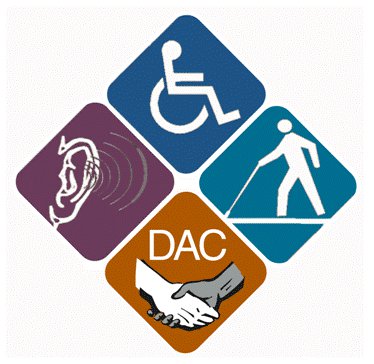
Accessible Greece
A physical disability should not prevent anyone from enjoying a Greek
holiday. Below is a guide to putting together a vacation that is accessible for
all
Consult the
experts
Christianakis Travel and Himalaya Travel have
many years of experience in accessible tourism. Among other
services, they can provide specially equipped vehicles for the
transportation of disabled individuals, find accessible hotels,restaurants, nightspots and tourist attractions, as well as put together special tour
packages to meet the particular needs of travelers with
disabilities.
Himalaya Travel
in collaboration with the National
Confederation of Disabled People, put together an accessibility
guide in 2008, cataloguing all of the tourist attractions and
recreational activities that are accessible to the disabled in 52 cities in
Greece. It can be obtained for free from ESAEA, or be read online, although it
would be a good idea for travelers to call ahead before visiting any attractions
or establishments as the information may be out of date.
John Sage is an
American who has relied on a wheelchair to get around since sustaining an
injury 2001. He has since travelled extensively with his wheelchair to over 120
cities in numerous European countries, including Greece, and has created the
website Sage Traveling with
the aim of assisting other disabled travelers. The website includes valuable
information about the accessibility of major archaeological sites and museumsin Athens, as well as a wealth of useful advice for travelers to the city.
Make use of
web-based platforms
Greece4all is one of
the most up-to-date online platforms focusing on
Greece’s accessibility infrastructure. It is aimed chiefly at foreign tourists
putting together their own holiday itineraries but is also a valuable resource
for Greeks themselves. The platform lists and rates the accessibility infrastructure
(or lack thereof) at destinations, businesses and services, so that disabled
visitors are not caught out. To date it has focused on six Greek
destinations: Athens, Thessaloniki, Crete, Rhodes, Corfu and
Halkidiki.
Prosvasis focuses
chiefly on mobility impairments, cataloguing the areas that are
accessible to wheelchair users. The site is available in both Greek and
English. "The situation in Greece is not too bad. Facilities exist – and
indeed well constructed ones – but they are not well known to the people they
are intended for,” says Eftihia Daskalopoulou, the co-founder of the platform.
On both
platforms one can find information about beaches, which provide individuals
with mobility impairments autonomous access to the sea via SEATRAC systems.These devices allow disabled people to enter and exit the sea on a
mechanized seat that travels on a track running into the water. Disabled
individuals can thus get in and out of the water at the mere push of a button.
The system relies solely on solar power, making it independent of the power
grid as well as environmentally friendly. The SEATRAC system is made in Greece
by the company TOBEA, having
been initially developed at the Laboratory of Applied Mechanics of the
University of Patras in 2009. Information about
the SEATRAC system, as well as on which Greek beaches it has been installed, is
available in both Greek and English on the company’s website.
The RollOut city guide was the first
web-based effort to catalogue and rate accessibility infrastructurein the region of Attica and features over 1,000 listings of areas
accessible to the disabled.
Search for associations
and groups
The Guide to
Accessible Recreational Activities in Greece produced by the National Confederation of Disabled
People includes a list of local groups of people with disabilities: from
experience, they know best about all of the existing accessibility
infrastructure and facilities in their areas. Questions about the accessibility
of a location or about the proper practices for businesses can also be directed
to the European
Network for Accessible Tourism. While it may not be an official regulatory
body (such a body does not exist), the network can draw on the experience of
its members to provide you with up-to-date information about any given
destination. You could also consult their European Accessible Tourism Directory Pantou, which lists
quite a few "undiscovered” accessible facilities, services and experiences
in Greece.
Confirm your
information
After
researching your trip, contact the locations and hotelsyou plan on visiting directly. A hotel may describe itself as accessible
because it has a wheelchair ramp leading to the entrance, but will your
wheelchair fit through the door to your room or the elevator? Make sure to get
answers to questions regarding your specific needs. Many businesses are
eager to help and will try to be forthcoming with the details of their
accessibility, but may not be aware of the precise needs of people with
disabilities and so may provide incorrect or unclear information.
Travel
In Greece many
people with disabilities don’t dare move about their cities.
"These people do
not leave their homes due to the difficulties they encounter, whether these are
due the lack of facilities or the obstacles created by their fellow citizens –
for example cars parked on wheelchair ramps. But my principle is that you need
to get out and be seen if you want something to change in the mentality of your
fellow citizens,” says Kamil Goungor, founding member of
i-Living – Independent Living Organization of Greece. Born with a
mobility disability and a user of an electric wheelchair himself, he loves to
travel and doesn’t appear to let much hold him back. So travel, in and of
itself, is a way to promote
accessibility for all.








